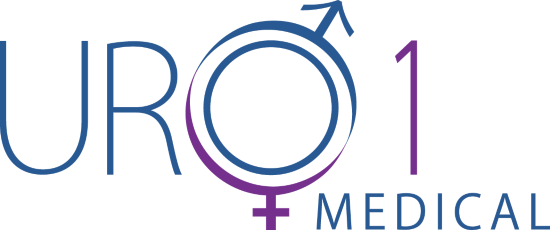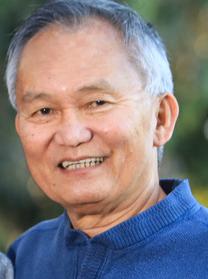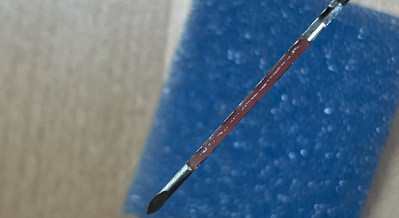
URO-1 Reports Financial, Product Development, Clinical Progress with NC Collaborations

Greensboro-based URO-1, an innovator of medical devices for urology and urogynecology, has achieved multiple milestones toward commercializing its products for prostate biopsy and other procedures.
The company has reached its goal of raising $5 million in a Series A round of venture capital financing, originally led by Acorn Campus Taiwan, following a recent “sizeable” investment by angel investors from Tennessee and Kentucky, according to a news release.
URO-1 also announced positive results from initial clinical studies of its FDA-cleared SUREcore biopsy needle and coreCARE specimen-retrieval kit for prostate biopsy.

“Achievement of our financing goals will accelerate replication and extension of the initial study results and drive completion of a suite of procedure-specific SUREcore soft tissue biopsy instruments and coreCARE specimen-retrieval kits for prostate and other organs,” said Ted Belleza, president and chief executive officer of URO-1.
The two medical devices were designed to improve soft tissue biopsy procedures, reduce workload and improve workflow in the clinic and the pathology lab. They are optimized for trans-rectal, trans-perineal and targeted prostate biopsy.
“In side-by-side comparisons with the same sized standard of care prostate biopsy needles, the SUREcore needle consistently delivered full, continuous cores with less sample-to-sample variability and significantly greater (12 to 21 percent) tissue volume by weight,” said John J. Smith III, M.D., chief medical officer for URO-1 and a urologist with NOVANT Health in Winston-Salem. “Use of the coreCARE Specimen Retrieval Kit, compared with current specimen-retrieval methods, preserved tissue integrity and reduced tissue artifact, which resulted in significantly reduced specimen preparation time and facilitated interpretation by pathology.”
Results of the studies will be submitted to a peer-reviewed medical journal for publication, the company said.
A need for better biopsy instruments
Prostate cancer is the most common cancer in American men and the second most common worldwide. About 240,000 new cases of prostate cancer are diagnosed each year in the United States, with 29,000 deaths.

Prostate biopsy is the definitive test for diagnosing the disease, with an estimated 2 million procedures performed each year in the United States. However, in up to 40 percent of prostate biopsies, the aggressiveness of the disease is either underestimated or overestimated, and in most of these cases, the pre-surgical assessment of aggressiveness is upgraded upon surgery, according to URO-1.
Deficiencies in sampling and retrieval of biopsy tissue can adversely affect a pathologist’s interpretation of prostate biopsy.
The need for better biopsy instruments became clear to Belleza, a serial entrepreneur in medical technology, when he had a prostate biopsy nearly seven years ago. “This is antiquated,” he thought at the time.
His opinion was confirmed by discussions with urologist friends who told him the field had changed little since they were trained decades previously. One urologist told him, “If there ever was a procedure begging for innovation, it is prostate biopsy,” Belleza said.
More accurate and efficient prostate biopsies are needed now more than ever because biopsies are being performed more frequently as part of active surveillance in men with low-risk disease, due to advancements in genomic testing and improved imaging, he said.
This has created a need for significantly improved higher volume and lower artifact samples from the same sized needle and more efficient workflow in and between the urology clinic and the pathology lab.
URO-1, established in 2017, is a portfolio company of the North Carolina Biotechnology Center, which in 2018 provided a $250,000 loan to support the company’s early product development.
In addition to its biopsy products, URO-1 has developed the Repris Bladder Injection System for injecting onabotulinumtoxinA (Botox) in the bladder wall to treat women with overactive bladder. Clinical studies demonstrate that its use is associated with improved outcomes, increased patient comfort and reduced dropout rates for repeat treatment, according to URO-1.
Numerous North Carolina collaborators
URO-1 has relied on several collaborators in North Carolina to advance its products, demonstrating both the far-reaching economic impact of resident bioscience companies and the value of having in-state vendors that can support those companies.
- URO-1’s R&D partner for its biopsy devices is Greensboro-based Automation Techniques, which also conducted a study on the Repris Bladder Injection System to validate clinical and market assumptions. Four North Carolina urologists from Greensboro, Winston-Salem and Charlotte participated as study investigators.
- Novex Innovations of Winston-Salem is the contract manufacturer for the Repris Bladder Injection System.
- Protolabs of Morrisville helps URO-1 to prototype its devices.
- Skyline Holt Exhibits of High Point produced a company exhibit for URO-1’s use at conferences and trade shows.
- URO-1 is also identifying a North Carolina-based contract manufacturer for its prostate biopsy products and will also work with one or more Independent Health networks in the state on a demonstration study of the benefits of its prostate biopsy products.
“It is exciting to see how the convergence of investment in product development and clinical application has further advanced the commercialization of URO-1’s medical device solutions” said Nancy Johnston, executive director of NCBiotech’s Piedmont Triad Office. “It also demonstrates the region’s opportunity to grow our med tech cluster.”
